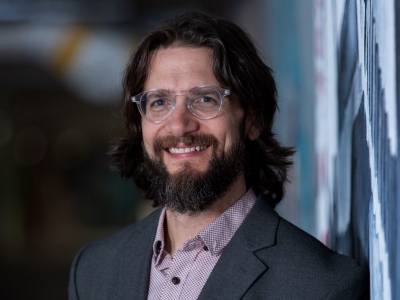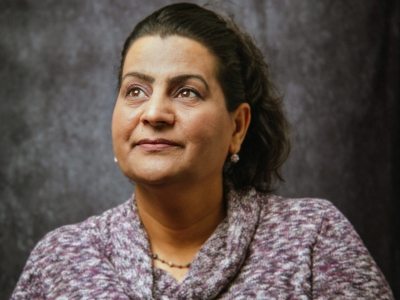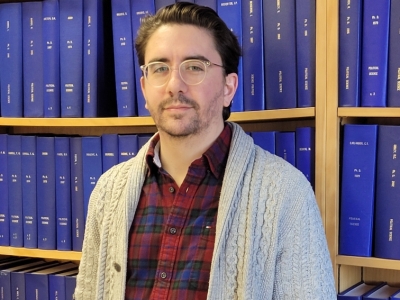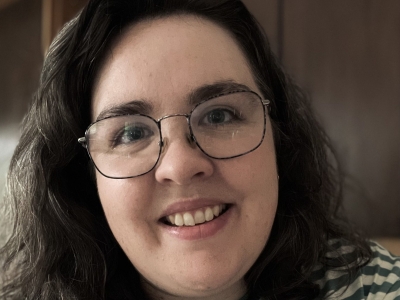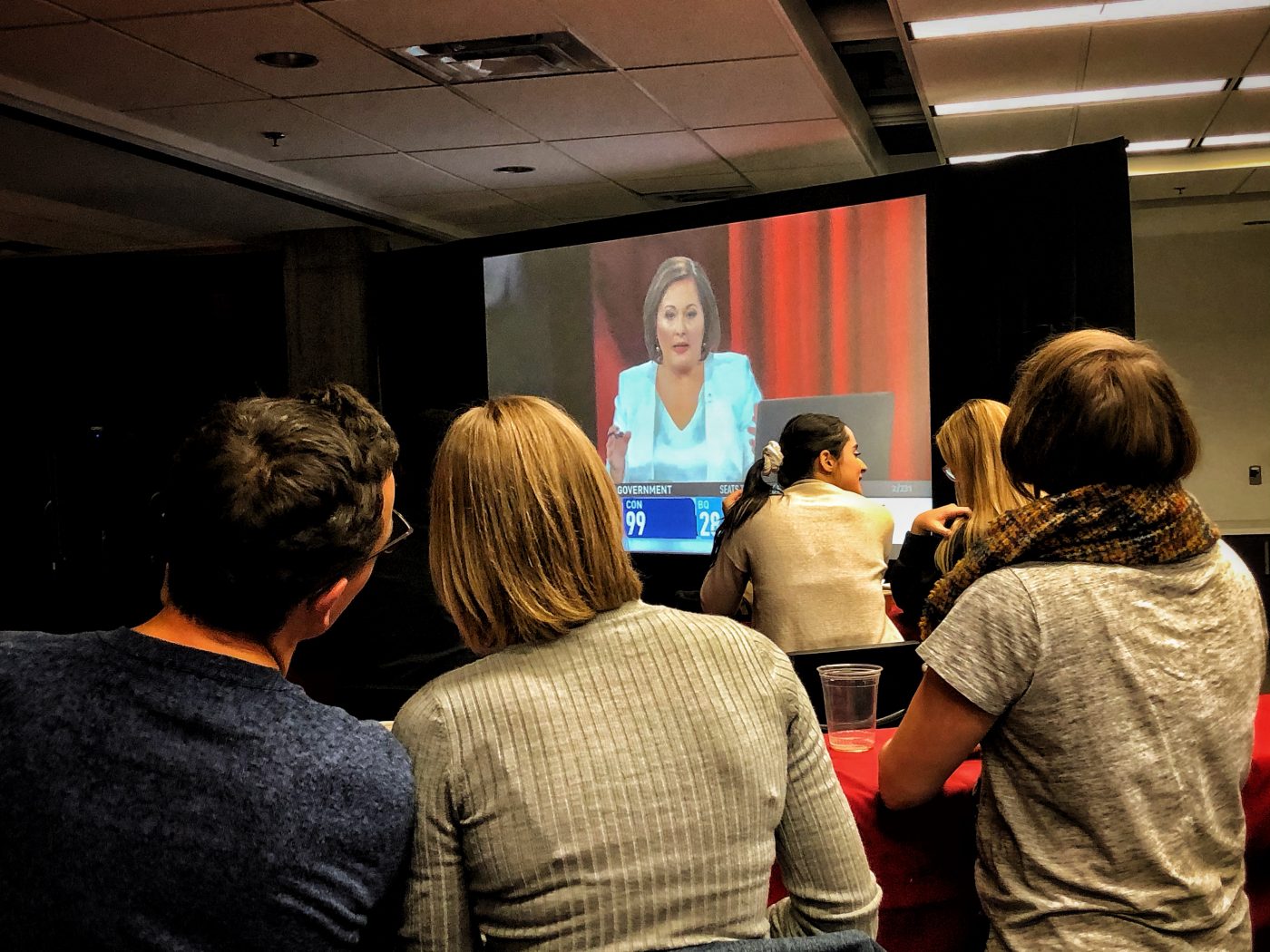
Students and community members watch the CBC’s Rosemary Barton, a journalism alumna, deliver the election results.
More than 100 students, faculty, staff and community members gathered in Residence Commons on October 21st to hear a panel discussion on the election campaign and watch the results.
One of the stars of the evening was Kevin Hua, a first-year student in the Bachelor of Public Affairs and Policy Management (BPAPM) program, who ran for federal office in the Carleton riding of Ottawa.
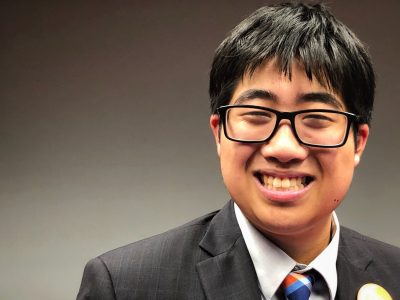
NDP candidate and BPAPM student Kevin Hua
“I couldn’t be happier. This was my first time voting and it was for myself,” said the 18-year-old, who won about 10% of his riding’s vote for the NDP. “I’m glad to be part of this event tonight.”
FPA Experts Weigh In
The evening was punctuated by a thoughtful panel discussion, moderated by Jonathan Malloy, the Honourable Dick and Ruth Bell Chair in
Canadian Parliamentary Democracy and Professor in the Department of Political Science.
He began by asking if the campaign focused on the issues people cared about, or if it was just a horse race. Malloy’s colleagues on stage argued that the campaign lacked a substantive discussion of important issues.
“The parties put forward platforms on issues such as climate change, but in the end, they were just sound bites,” argued Paul Thomas, Adjunct Research Professor in the Department of Political Science and Senior Research Associate at the Samara Centre for Democracy. “We have to do a better job of holding parties to account for the mandates they claim.”
Jennifer Robson, Associate Professor in the Clayton H. Riddell Graduate Program in Political Management, found the public discussion on affordability barely scratched the surface.
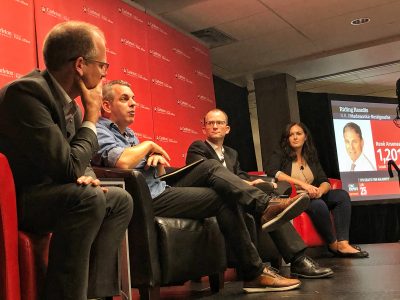
Election panellists (L to R): Jonathan Malloy, Marc-André Gagnon, Paul Thomas, Jennifer Robson
“There were a lot of promises made on child care, on insurance, but they never specified who was having challenges with affordability and why,” said Robson. “For instance, they chose to give a tax break on maternity leave: why? The facts were absent from the debate.”
Marc-André Gagnon, Associate Professor in the School of Public Policy and Administration, discussed the proposals for universal pharmacare, which is the focus of his research.
“Canada is one of the few G-7 countries that doesn’t include prescription drugs in its health care system. We need better coverage, but we can’t do anything because our system is totally fragmented,” he said.
The group also discussed the media coverage of the campaign, and specifically the ubiquity of fake news.
“People choose what they want to consume and there are lots of people happy to give them lots of fake information,” Malloy pointed out.
The panel ended with the announcement of results in Quebec through Alberta, and the subsequent news that the Liberals had won a minority. Dozens of students, faculty, staff and community members continued to mingle, discussing what the future holds for Canada.
It was an ideal event for the Faculty of Public Affairs to host, said the Faculty’s Dean, André Plourde.
“We were not just marking the 2019 Federal Election; we were honouring the value of our democracy in Canada,” he said. “It’s also a reflection of our values in the Faculty of Public Affairs to foster informed citizenship, build better societies, and better democracy.”
Thursday, October 24, 2019 in Department of Political Science, General, News, Political Management, Public Affairs and Policy Management, Public Policy and Administration
Share: Twitter, Facebook
